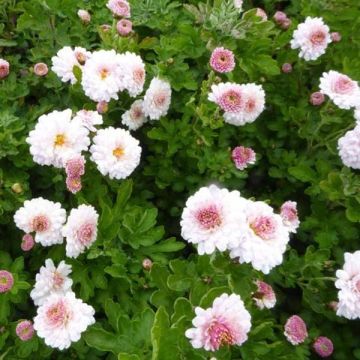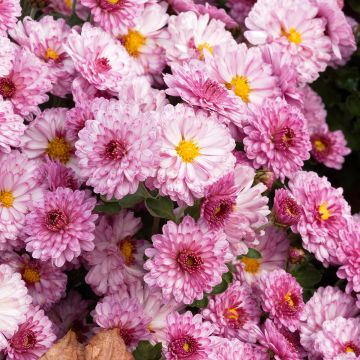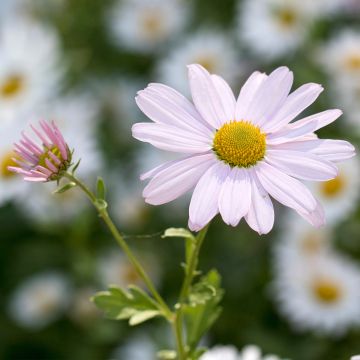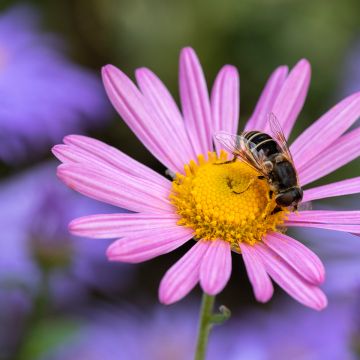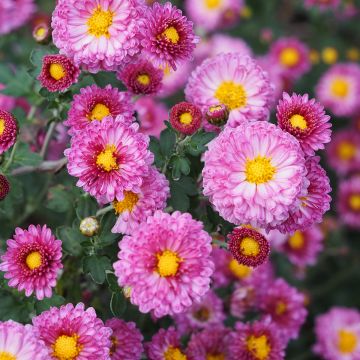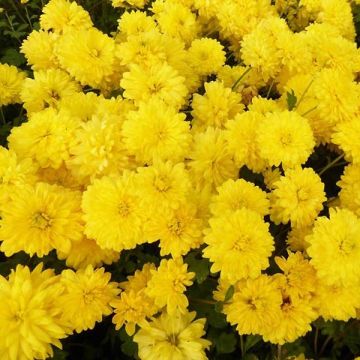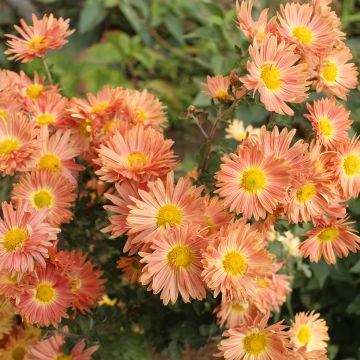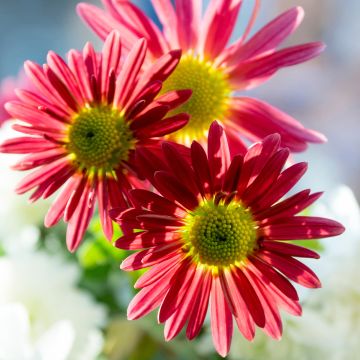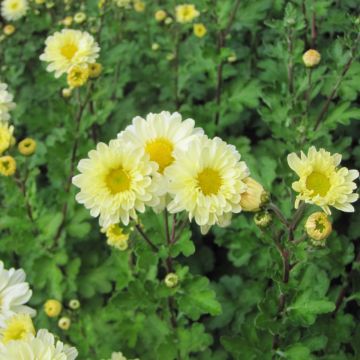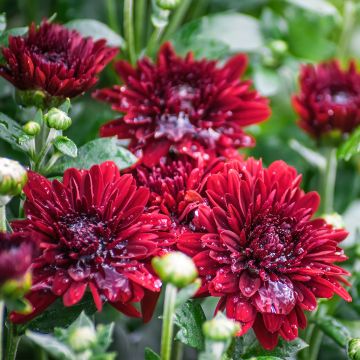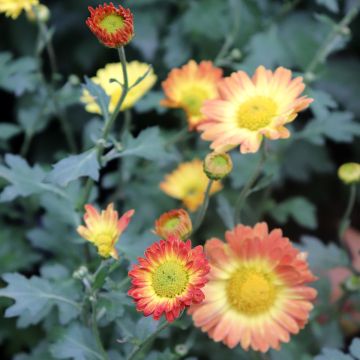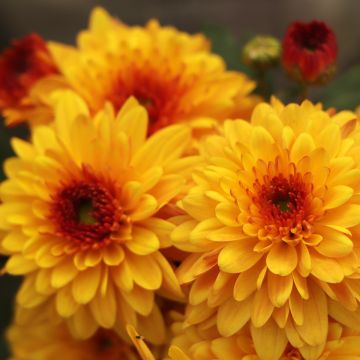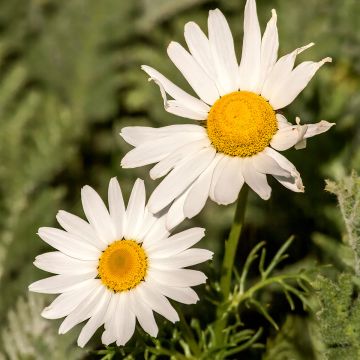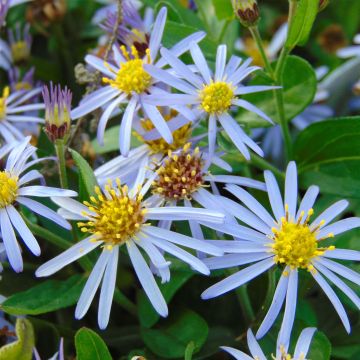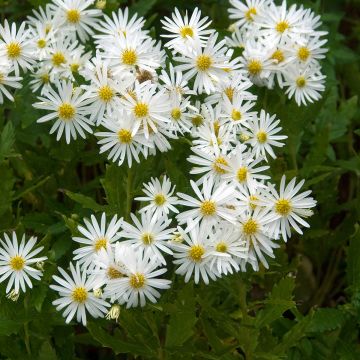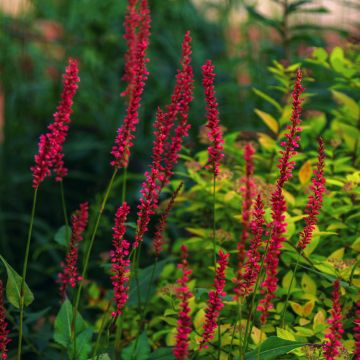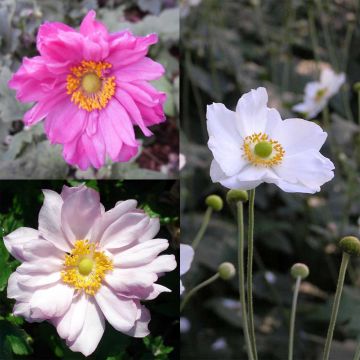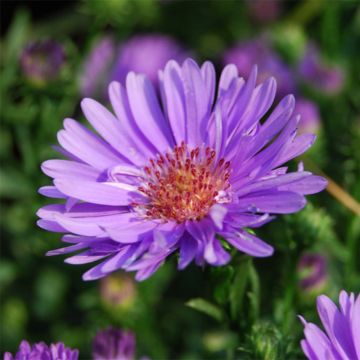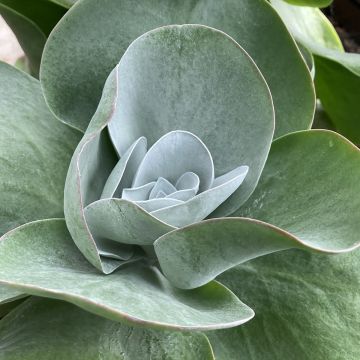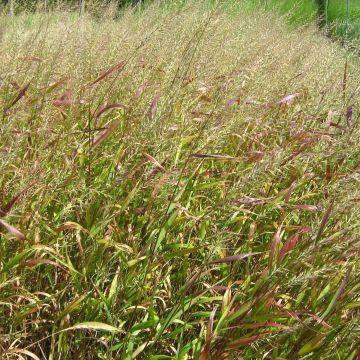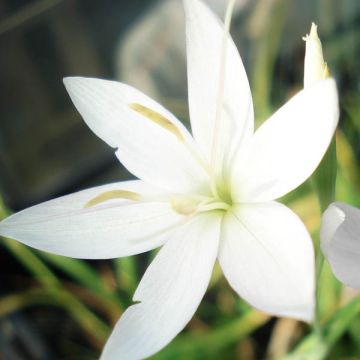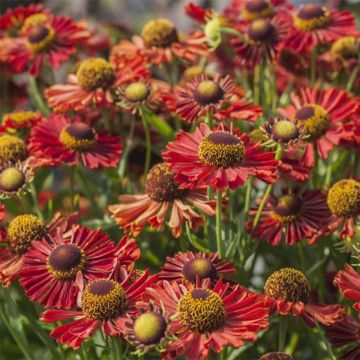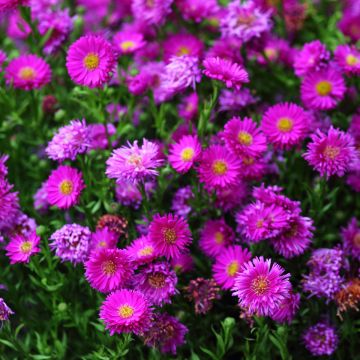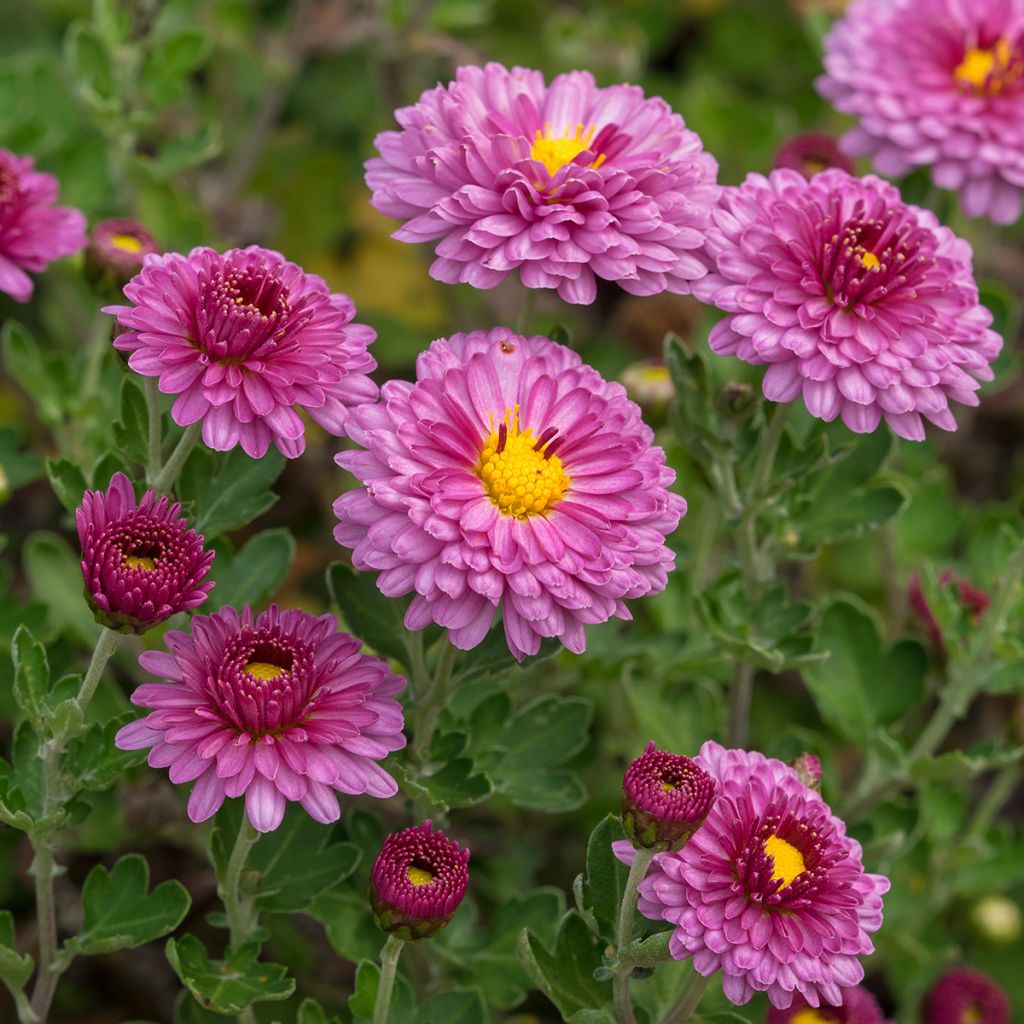

Chrysanthemum indicum Anastasia
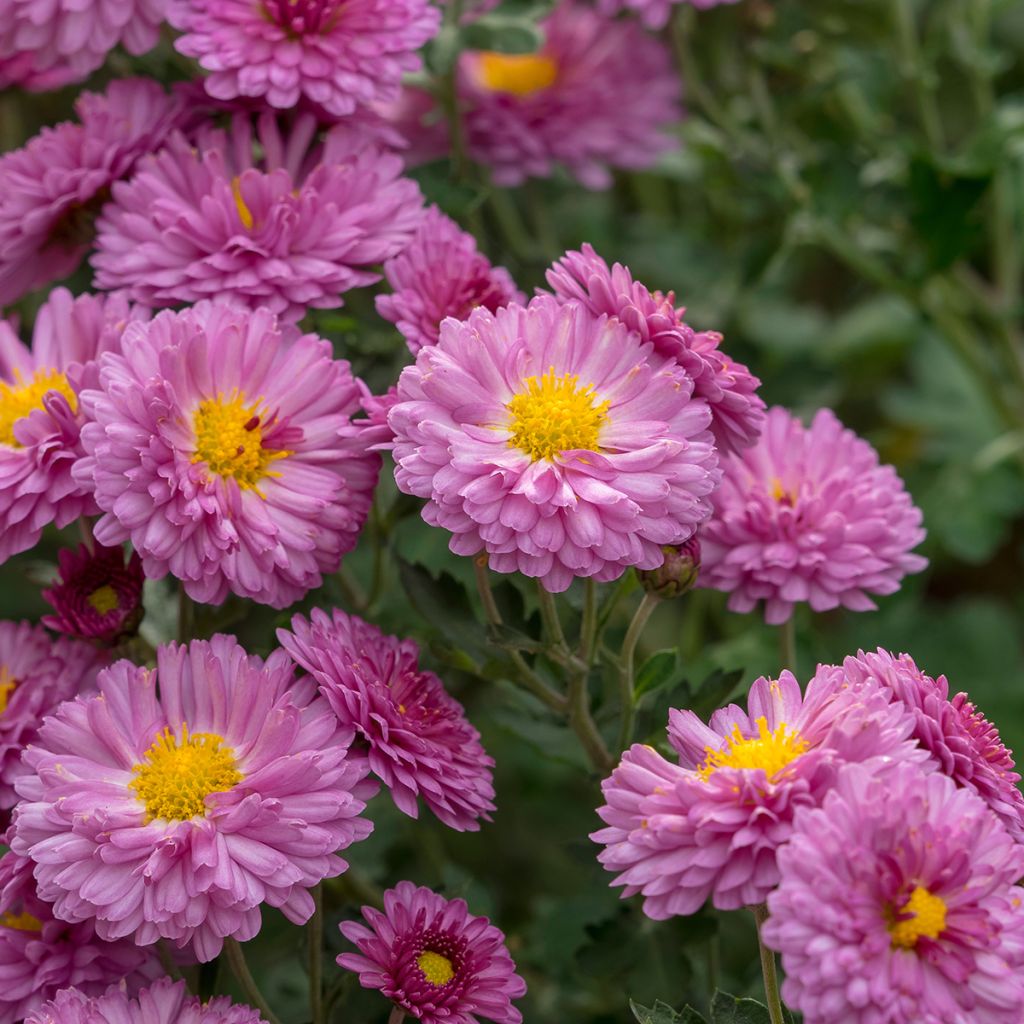

Chrysanthemum indicum Anastasia
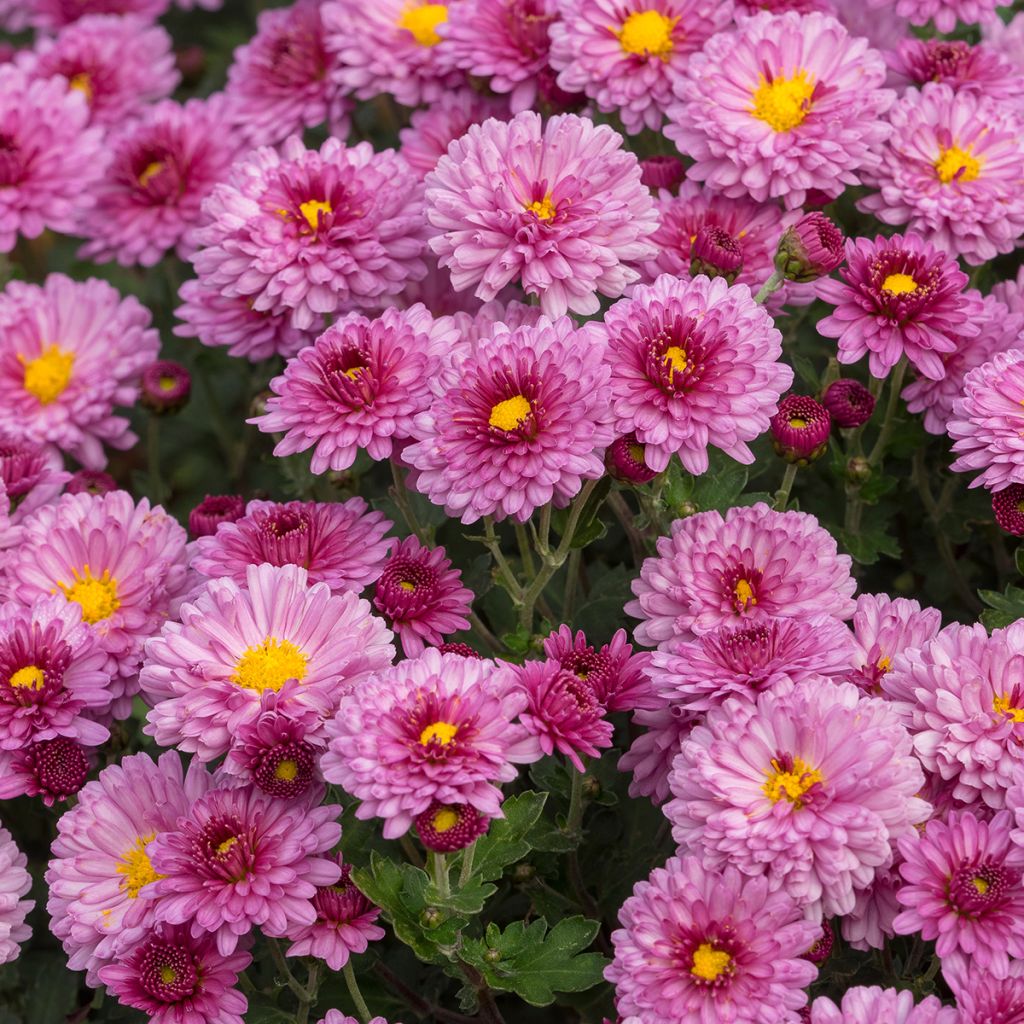

Chrysanthemum indicum Anastasia
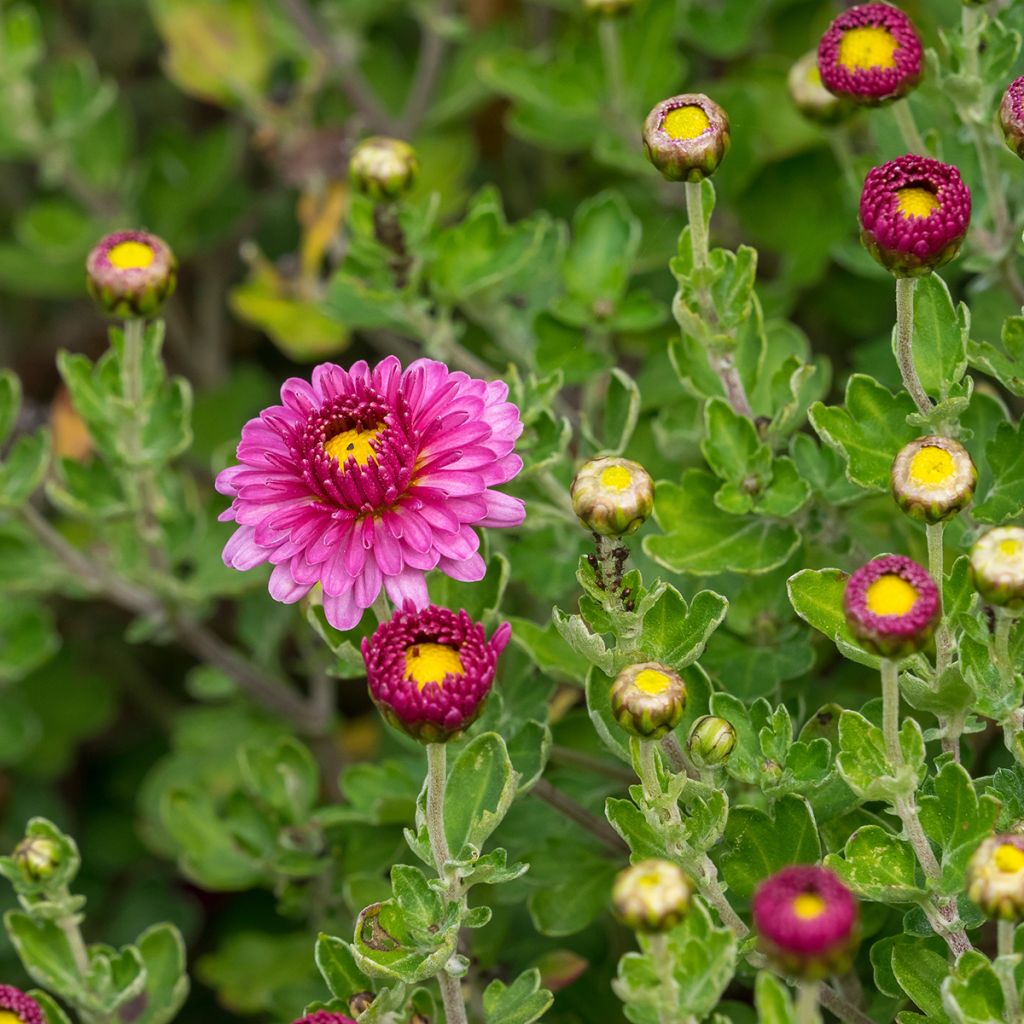

Chrysanthemum indicum Anastasia
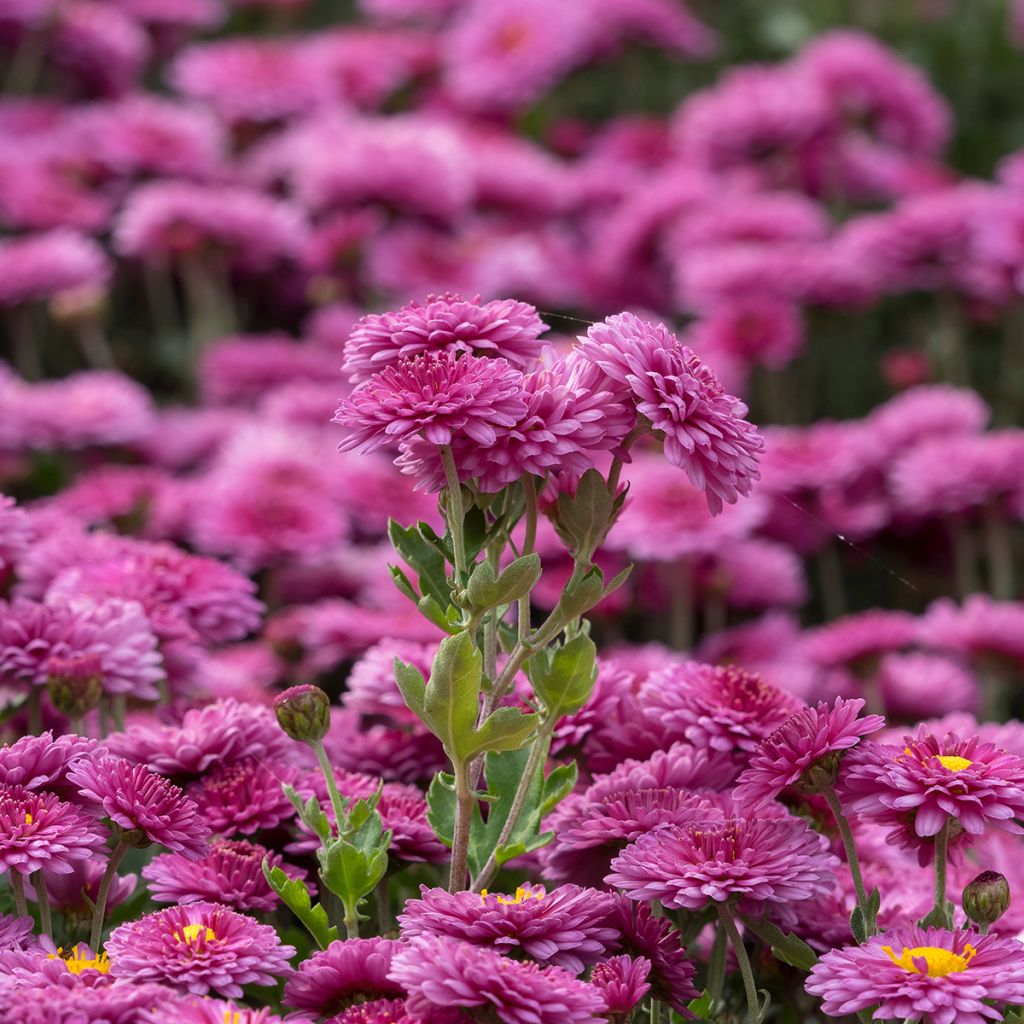

Chrysanthemum indicum Anastasia
Chrysanthemum indicum Anastasia
Chrysanthemum x indicum Anastasia
Garden Mum, Indian Chrysanthemum, Florist's Daisy
Beautiful young plant well rooted. Only one branch, but well ramified and covered in buds. I will have the pleasure of seeing it in flower as early as this year.
Nadine, 27/09/2023
Why not try an alternative variety in stock?
View all →This plant carries a 12 months recovery warranty
More information
We guarantee the quality of our plants for a full growing cycle, and will replace at our expense any plant that fails to recover under normal climatic and planting conditions.
From €5.90 for pickup delivery and €6.90 for home delivery
Express home delivery from €8.90.
Does this plant fit my garden?
Set up your Plantfit profile →
Description
Chrysanthemum x indicum Anastasia, more commonly known as Garden Chrysanthemum, is a late-flowering variety that is highly decorative. From September onwards numerous floral buds open into small pink flowers, grouped in dense clusters. Reaching a height of 70 to 100 cm (28 to 39in), this perennial plant forms floriferous clumps in most climates, at a time when blooms are scarce. It also makes for stunning indoor bouquets.
The Garden Chrysanthemum belongs to the large Asteraceae family, which includes nearly 33,000 different species! Also known as Compositae, it includes native plants (daisies, dandelions) as well as highly prized horticultural varieties in gardens and floristry. The Chrysanthemum x indicum (or Dendranthema x indicum) is a plant native to East Asia, cultivated since ancient times in China, Japan, and Korea, and is the origin of florist chrysanthemums.
Anastasia is a truly charming variety. This fast-growing plant forms a clump that reaches a height of 70 cm (28in) to 100 cm (39in), with a width of about 50 cm (20in). Flowering takes place from September to early November depending on the climate, and it spreads over several weeks. The plant is covered with numerous daisy-like flowers, the very double corollas are actually capitula of approximately 3 cm (1in) in diameter and larger, grouped in clusters called corymbs at the ends of the stems. The dark pink floral buds give rise to flowers with a romantic magenta pink colour, enhanced by a golden yellow centre. The leaves are borne on short petioles measuring 1 to 2 cm (0 to 1in) in length. The oval lamina measures 5 to 7 cm (2 to 3 in) in length and 4 cm (2 in) in width. It is lobed, somewhat resembling an oak leaf, and has a matte medium green colour. The root system of this plant is a superficial rhizome. The above-ground vegetation dries out in winter and regrows in spring.
Garden chrysanthemums are valuable for enhancing the garden during a period with few blooms. They will coexist well with their cousins, the Asters, with dwarf or low-growing varieties that can be planted in the foreground. They also pair well with ornamental grasses such as Stipa pulcherrima with its long silver inflorescences swaying in the slightest breeze, or Pennisetum alopecuroides 'Gelbstiel' with its fluffy plumes blooming from spring to autumn. In the background, you can choose from a wide range of plants with foliage that takes on beautiful autumn colours, such as Cotinus. This chrysanthemum is also a good flower for cutting, and it lasts very well in a vase.
The aerial parts of Chrysanthemum indicum (flowers, leaves, and stems) are part of Chinese pharmacopoeia. They are used in traditional medicine for the treatment of dizziness, symptoms of hypertension, and several infectious diseases. Chrysanthemum comes from the Greek words "Chrysos" (gold) and "anthemon" (flowered) because originally, the cultivated plant had golden blooms.
Report an error about the product description
Flowering
Foliage
Plant habit
Botanical data
Chrysanthemum
x indicum
Anastasia
Asteraceae
Garden Mum, Indian Chrysanthemum, Florist's Daisy
Cultivar or hybrid
Other Chrysanthemum
Planting and care
Garden chrysanthemums require a sunny exposure and a light, slightly acidic to neutral, fertile soil, not too dry to moist. They are hardy, down to at least -15°C (5°F). To maintain a compact habit, the shoots can be cut back in spring to 30cm (12in), this will force the plant to branch out. A second pinch in the summer allows for a greater number of small flowers. Water two or three times a week and apply a liquid fertiliser for flowering plants every eight days from July until the buds colour. Garden chrysanthemums are sturdy, very long-lived plants that can keep going for forty years or more. They have few enemies, but they are susceptible to poorly drained and heavy soils, which can cause root rot. Slugs and snails are fond of the young shoots in spring; make sure to protect them!
Planting period
Intended location
Care
-
, onOrder confirmed
Reply from on Promesse de fleurs
Late flowering perennials
Haven't found what you were looking for?
Hardiness is the lowest winter temperature a plant can endure without suffering serious damage or even dying. However, hardiness is affected by location (a sheltered area, such as a patio), protection (winter cover) and soil type (hardiness is improved by well-drained soil).

Photo Sharing Terms & Conditions
In order to encourage gardeners to interact and share their experiences, Promesse de fleurs offers various media enabling content to be uploaded onto its Site - in particular via the ‘Photo sharing’ module.
The User agrees to refrain from:
- Posting any content that is illegal, prejudicial, insulting, racist, inciteful to hatred, revisionist, contrary to public decency, that infringes on privacy or on the privacy rights of third parties, in particular the publicity rights of persons and goods, intellectual property rights, or the right to privacy.
- Submitting content on behalf of a third party;
- Impersonate the identity of a third party and/or publish any personal information about a third party;
In general, the User undertakes to refrain from any unethical behaviour.
All Content (in particular text, comments, files, images, photos, videos, creative works, etc.), which may be subject to property or intellectual property rights, image or other private rights, shall remain the property of the User, subject to the limited rights granted by the terms of the licence granted by Promesse de fleurs as stated below. Users are at liberty to publish or not to publish such Content on the Site, notably via the ‘Photo Sharing’ facility, and accept that this Content shall be made public and freely accessible, notably on the Internet.
Users further acknowledge, undertake to have ,and guarantee that they hold all necessary rights and permissions to publish such material on the Site, in particular with regard to the legislation in force pertaining to any privacy, property, intellectual property, image, or contractual rights, or rights of any other nature. By publishing such Content on the Site, Users acknowledge accepting full liability as publishers of the Content within the meaning of the law, and grant Promesse de fleurs, free of charge, an inclusive, worldwide licence for the said Content for the entire duration of its publication, including all reproduction, representation, up/downloading, displaying, performing, transmission, and storage rights.
Users also grant permission for their name to be linked to the Content and accept that this link may not always be made available.
By engaging in posting material, Users consent to their Content becoming automatically accessible on the Internet, in particular on other sites and/or blogs and/or web pages of the Promesse de fleurs site, including in particular social pages and the Promesse de fleurs catalogue.
Users may secure the removal of entrusted content free of charge by issuing a simple request via our contact form.
The flowering period indicated on our website applies to countries and regions located in USDA zone 8 (France, the United Kingdom, Ireland, the Netherlands, etc.)
It will vary according to where you live:
- In zones 9 to 10 (Italy, Spain, Greece, etc.), flowering will occur about 2 to 4 weeks earlier.
- In zones 6 to 7 (Germany, Poland, Slovenia, and lower mountainous regions), flowering will be delayed by 2 to 3 weeks.
- In zone 5 (Central Europe, Scandinavia), blooming will be delayed by 3 to 5 weeks.
In temperate climates, pruning of spring-flowering shrubs (forsythia, spireas, etc.) should be done just after flowering.
Pruning of summer-flowering shrubs (Indian Lilac, Perovskia, etc.) can be done in winter or spring.
In cold regions as well as with frost-sensitive plants, avoid pruning too early when severe frosts may still occur.
The planting period indicated on our website applies to countries and regions located in USDA zone 8 (France, United Kingdom, Ireland, Netherlands).
It will vary according to where you live:
- In Mediterranean zones (Marseille, Madrid, Milan, etc.), autumn and winter are the best planting periods.
- In continental zones (Strasbourg, Munich, Vienna, etc.), delay planting by 2 to 3 weeks in spring and bring it forward by 2 to 4 weeks in autumn.
- In mountainous regions (the Alps, Pyrenees, Carpathians, etc.), it is best to plant in late spring (May-June) or late summer (August-September).
The harvesting period indicated on our website applies to countries and regions in USDA zone 8 (France, England, Ireland, the Netherlands).
In colder areas (Scandinavia, Poland, Austria...) fruit and vegetable harvests are likely to be delayed by 3-4 weeks.
In warmer areas (Italy, Spain, Greece, etc.), harvesting will probably take place earlier, depending on weather conditions.
The sowing periods indicated on our website apply to countries and regions within USDA Zone 8 (France, UK, Ireland, Netherlands).
In colder areas (Scandinavia, Poland, Austria...), delay any outdoor sowing by 3-4 weeks, or sow under glass.
In warmer climes (Italy, Spain, Greece, etc.), bring outdoor sowing forward by a few weeks.

































